Here's What Derms Want You to Know About Acne Before You Buy Your Next Serum
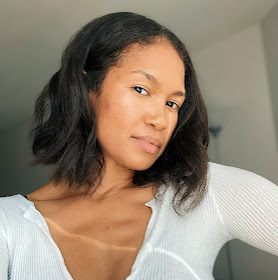
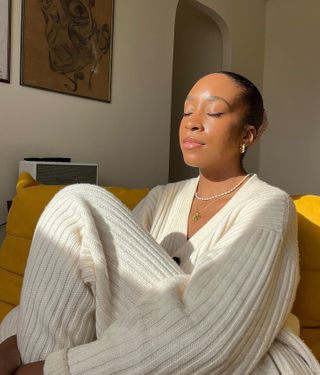
There's one major thing about my acne-prone skin that I didn't understand until recently. Acne-prone skin is actually just sensitive skin. After hearing this from multiple skin experts, I finally started to understand my breakouts a lot better. First of all, I was using the wrong kind of "acne-fighters" for my skin type. Sometimes, those who have very sensitive skin don't react well to high doses of acne-fighting ingredients like salicylic acid. Unfortunately, I had to learn the hard way, but I'm glad I'm armed with this knowledge now. It has completely transformed my skin and skincare routine for the better. Now, I focus on gentler ingredients that support the skin barrier and help with acne like niacinamide.
It's also important to note that there are so many different factors that can affect your breakouts. You should definitely see a professional to help you nail down exactly what's going on with your specific acne, but taking note of how your skin responds to certain ingredients is a good place to start. Dermatologists and a celebrity esthetician have more on the best serums to not only help you fight acne but also help you beat post-inflammatory hyperpigmentation as well. After all, serums are one of the most important steps in any skincare routine. Keep reading—lots of bookmark-worthy knowledge is ahead.
How to Choose the Best Serums for Acne
Board-certified dermatologist Lauren Penzi, MD, says there are three key ingredients that work the best for acne-prone skin—salicylic acid, niacinamide, and retinol. "Salicylic acid is a beta hydroxy acid (BHA) that helps dissolve and break down the excess sebum and oil that gets trapped in pores," she says. "Niacinamide is a fabulous multipurpose ingredient that helps decrease inflammation, decreases oil production, fades pigmentation, and reinforces the skin barrier. Retinol works to increase cell turnover promotes new collagen synthesis, and keeps dirt and sebum out of pores."
Additionally, board-certified dermatologist Marisa Garshick, MD, says hydration is also key. "[Look for] ingredients that hydrate and support the skin barrier like hyaluronic acid and ceramides, niacinamide to help soothe and calm the skin, azelaic acid, and ingredients that help address pigmentation." She also says there are a few things to avoid. "Regardless of which ingredients or serum used, it is important to avoid products that are comedogenic or clog the pores. Specifically, certain oils (like coconut oil) can make acne worse as they can clog pores and contribute to more breakouts."
The Truth About Acne Scars
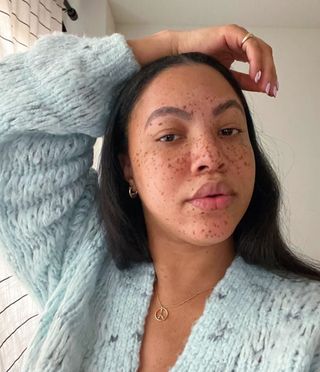
If you're also dealing with acne scars, skin experts want you to know a bit more information on them first. "There’s no magic wand for acne scars, typically we recommend a combination approach to remodeling textural acne scars, says celebrity esthetician Candace Marino. "Scars are the loss of collagen in the skin. In order to rebuild the skin, we recommend a combination of lasers, peels, micro-needling, and radio frequency alongside skincare that includes growth factors."
"Post-inflammatory hyperpigmentation or erythema is often times called acne scars, however, these are not scars—they are pigment or lingering redness caused by the inflammation or injury to the skin (if you pick). These are treated as pigmentation, and acids, retinols, and pigment inhibitors are the standard combination for treating these. While sunscreen is always recommended, with pigmented skin, it’s absolutely imperative, as the sun will only deepen the discoloration."
Garshick also has a running list of ingredients that can help hyperpigmentation. "Other ingredients used to help hyperpigmentation that may also be helpful for those with acne-prone skin include azelaic acid, alpha hydroxy acids like glycolic or lactic acid, licorice root extract, and vitamin C. Azelaic acid is also particularly good for those who are dealing with acne while pregnant as it is considered pregnancy-safe."
Take a peak below for each skin expert's picks for acne.
The Best Serums for Acne
Best Overall: IS Clinical Active Serum
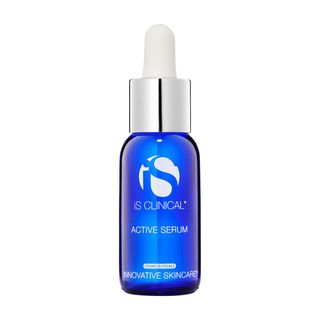
Pros: Effective and gentle exfoliating ingredients, pregnancy-safe, helps remove cellular debris and congestion, botanically-derived ingredients
Cons: Expensive
"The IS Clinical Active Serum is a gentle resurfacing combination of lactic, salicylic, and glycolic acid which helps to remove dead cellular debris and prevent/ treat pore buildup. The active ingredients are botanically derived making this appropriate and safe for pregnancy and breastfeeding. It’s a great retinol alternative. Added bonus, it’s super anti-aging and brightening, it will lift hyperpigmentation over time and improve the overall texture of the skin."—Marino
Customer Review: "This product does it all—exfoliates, prevents breakouts, and prevents fine lines and wrinkles. I love it and couldn't do without it."
The Ordinary Niacinamide 10% + Zinc 1% Oil Control Serum
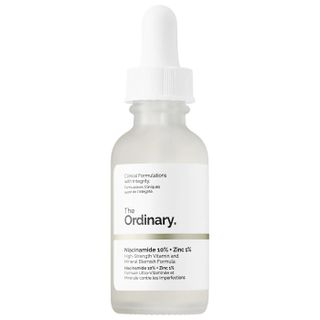
Pros: Affordable, reduces the appearance of blemishes, helps regulate sebum production in the skin
Cons: May not be suitable for highly sensitive skin
"Niacinamide reduces the appearance of skin blemishes and signs of congestion, visibly brightens skin tone, while zinc regulates excess sebum activity."—Penzi
Customer Review: "Feels so good on my skin, and used with the glycolic acid toner...OMG they leave my skin feeling like a baby's."
La Roche-Posay Retinol Face Serum
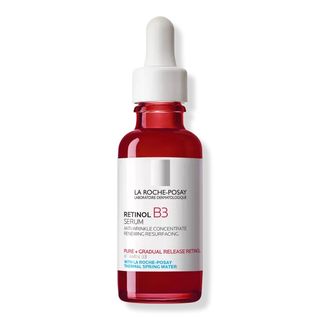
Pros: Oil-free, reduces the look of fine lines, clears congestion, vitamin B3 soothes the skin
Cons: Not fragrance-free
"This formulation has a pure and gradual release of retinol that acts gradually on the skin for efficacy and tolerance. It's lightweight, hydrating texture visibly renews skin, reducing lines and wrinkles, and creating a more luminous look, in addition to fighting acne."—Penzi
Customer Reviews: "This product has changed my skin! I have finally finished my first bottle and I have noticed my acne has been GONE ever since I started using it. I obviously have a spot here and there but it goes away fast using this product. I'm young so I don't have wrinkles to verify that it does help with that! But it makes my skin bright, bouncy, and it clears it up! I love it so much!!! it is one of the best retinols I have used! And it's on the cheaper side of retinols!"
Glow Recipe Strawberry Smooth BHA +AHA Salicylic Acid Serum
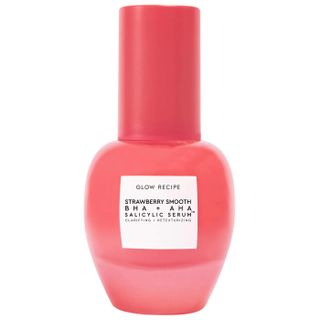
Pros: Contains AHAs and BHAs that smooth out texture and clear congestion, refines the look of enlarged pores, helps fade hyperpigmentation
Cons: May not be suitable for highly sensitive skin
"A powerful yet soothing AHA and BHA acid serum that gently smooths, addresses the appearance of breakouts, and visibly refines pores for clear, hydrated skin."—Penzi
"This contains a combination of salicylic acid, a beta hydroxy acid, and mandelic acid, an alpha hydroxy acid, as well as azelaic acid and succinic acid. Additionally, strawberry has natural exfoliating and antioxidant properties. Together it works to brighten the skin while reducing the appearance of pores."—Garshick
Customer Review: "I got a sample in an Ipsy bag and noticed a change in my skin after just a few uses! I love how glowy it makes my skin look. The texture is improving and it’s cleared up some acne scars so far!"
SkinCeuticals Phloretin CF
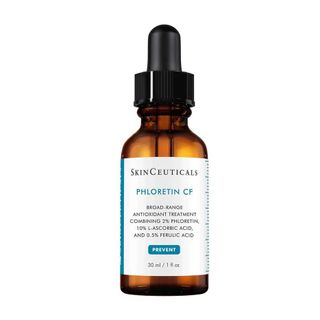
Pros: Provides powerful antioxidant protection, improves cell turnover, helps fade hypierpigmentation.
Cons: Expensive
"This serum provides powerful antioxidant protection to normal, oily, and combination skin types. It neutralizes damaging free radicals, improves cell turnover, and lightens signs of discoloration."—Penzi
Customer Review: "My skin is noticeably brighter, and the sun spots on my forehead are barely visible now. My skin is clear and I am actually somewhat comfortable not wearing makeup for the first time in years. I didn't find it to cause any tingling sensation."
Sunday Riley U.F.O. Salicylic Acid BHA Acne Treatment Face Oil
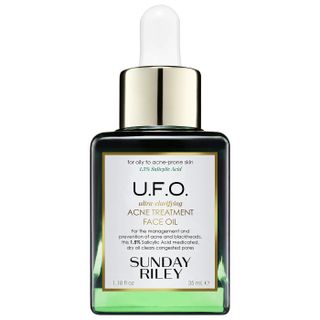
Pros: Hydrating face oil with salicylic acid, clears congested pores, smooths the appearance of fine lines
Cons: Expensive
"A quick-absorbing, medicated dry oil to clear congested pores, treat and prevent acne, and smooth the appearance of fine lines and wrinkles for clearer, smoother skin."—Penzi
Customer Review: "I have extremely sensitive skin that tends to break out easily, plus i’m allergic to niaciminade and this product literally saved my skin. it’s never been clearer and I feel so much more confident in my skin."
Jan Marini Age Intervention Duality
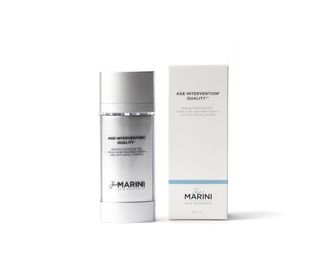
Pros: Combines retinol and benzoyl peroxide to clear acne, contains premature aging-fighting peptides
Cons: Expensive
"This is phenomenal for acne. It's a two-pump chamber serum featuring retinol on one side and benzoyl peroxide on the other—two anti-acne powerhouses."—Marino
Customer Review: "Been using only four weeks now and not had a breakout since. This stuff is officially my holy grail. I’ve tried it all with trying to control my acne over the past 15 years (including prescription tretinoin) and Duality takes the cake. I could never find something that didn’t make my skin irritated and kept my acne away while also fighting scars. My holy grail. Wish I bought sooner. Take all my money this will be a staple in my skincare routine forever. "
Skinbetter Science AlphaRet Clearing Serum
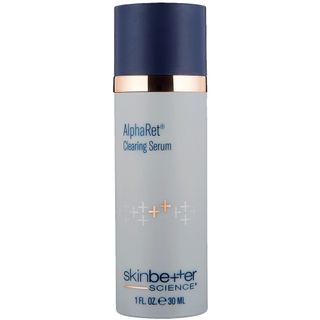
Pros: Addresses acne, hyperpigmentation, and fine lines in one, combines BHAs and AHAs to clear congested pores, contains zinc to calm inflammation and redness
Cons: Expensive
"This has retinol with AHAs and BHAs to penetrate the skin, clear, and clarify acne-prone and congested skin."—Marino
"This serum packs a punch as it combines a retinoid with lactic acid, an alpha hydroxy acid, and salicylic acid, a beta hydroxy acid. Together, this combination works on overall tone and texture of the skin including fine lines and wrinkles while improving the appearance of pores and blemishes, making it a good option for those with oilier and blemish-prone skin as it also contains zinc PCA. Additionally, it contains niacinamide, sodium hyaluronate, and other nourishing ingredients to help moisturize the skin, so it won’t be left feeling dry or irritated."—Garshick
Customer Review: "Obsessed with this serum! It’s helped my acne and skin texture so much. I have very sensitive skin and this is the only retinol that hasn’t irritated my skin. Also I use it every single night and am still on the same bottle I started five months ago so the price is definitely worth it."
Naturium Azelaic Acid Serum
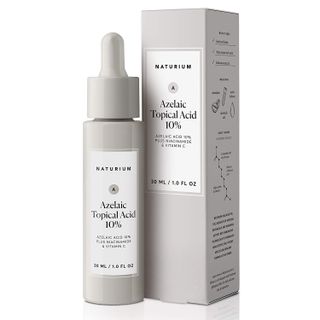
Pros: Affordable, contains azelaic acid to help reduce acne bacteria and gently exfoliate, helps improve the appearance of dark spots
Cons: Strong smell
"This azelaic acid serum works to gently exfoliate and can help to balance excess oil, working to reduce breakouts, while also gently exfoliating and improving the appearance of dark spots and blemishes. This creamy and lightweight emulsion absorbs easily and also contains niacinamide, so it is soothing and won’t leave the skin feeling irritated."—Garshick
Customer Review: "I have rosacea that results in redness and pustules all over my nose and forehead and prior to this product had very unimpressive effects from other over-the-counter azelaic acid serums. This product was very easy to apply, gentle on my skin, and honestly cleared me up a little after just one day! It's been three weeks of using it morning and evening every day, and my skin keeps getting better and better: brighter, so much less redness, only a few pustules, and more youthful-looking. Yes, it smells pretty bad, but my skin looks and feels so good I don't care at all; I'd so much rather take the product that is a little temporarily stinky but works like a dream over a product that smells like the spa but does so little for me."
Vichy Mineral 89 Prebiotic Recovery and Defense Concentrate
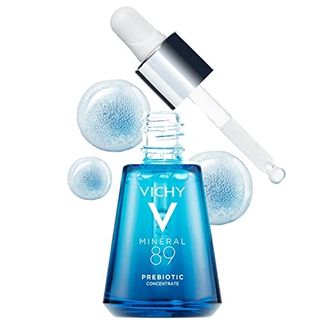
Pros: Helps repair the skin barrier, soothes skin, fights signs of skin stress, reduces irritation
Cons:
"This serum which can be used once or twice per day incorporates Vichy volcanic water, vitreoscilla ferment, and niacinamide, which together help to boost repair of the skin barrier and soothes the skin, helping to fight the signs of stress. When used at night, it has been shown to reduce irritation associated with retinoid use."—Garshick
Customer Review: "I've always had tricky skin: sensitive, hormonal cystic acne, noticeable pores, dryness/dehydrated. I tried this serum for the heck of it figuring that at 30, my skin is what it is...I am so incredibly impressed by the results. By week two, my jaw actually dropped as I did my morning cleanse. My skin has never felt so hydrated, soft, or smooth. My pores appear to be smaller and the tiny blackheads I'm prone to have not been appearing. I haven't been using the serum long enough to see if it will withstand my cycle hormones, but I have never been more confident in how my skin looks than I am right now. Highly, highly recommend..."
SkinCeuticals Blemish + Age Defense
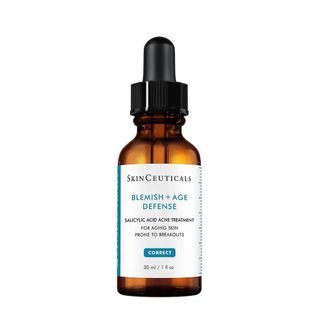
Pros: Incorporates salicylic acid, glycolic, and dioic acid to help control oil and clear existing breakouts
Cons: Expensive, may be too strong for sensitive skin
"This splurge-worthy serum incorporates salicylic acid to help with oil and breakouts as well as dioic acid, glycolic acid, LHA, and citric acid to help exfoliate and helps to address breakouts and signs of aging."—Garshick
Customer Review: "I’ve been using this product for the last couple years and it’s the best thing that has ever happened to my skin!"
The Best Serums for Acne Scars
Paula's Choice Clinical Discoloration Repair Serum
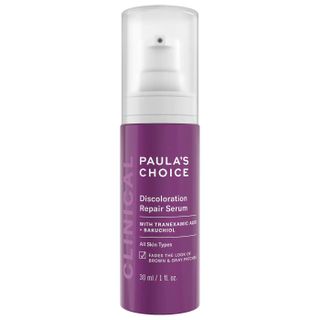
Pros: Tranexamic acid, baukchiol, and niacinamide target hyperpigmentation
Cons: May take a while to see results
"This uses tranexamic acid, bakuchiol, and niacinamide to target dark, discolored spots while preventing new discoloration."—Penzi
Customer Review: "This product has made acne scars that I have had for years become less visible in just two weeks! Amazing product for an even skin tone, too."
Murad Rapid Dark Spot Correcting Serum
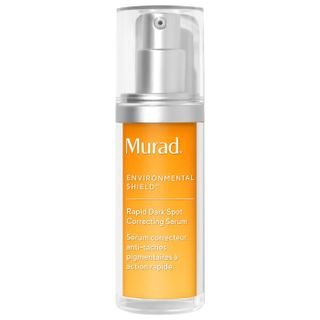
Pros: Improves skin cell turnover, utilizes resorcinol and tranexamic acid to minimize hyperpigmentation
Cons: Not fragrance-free
"This employs resorcinol and tranexamic acid to help minimize the appearance of hyperpigmentation and uneven skin tone, as well as glycolic acid to remove dull surface cells and brighten skin's appearance."—Penzi
Customer Review: "Murad is a great one for dark spots. It’s really worked well for my face. I had pregnancy dark spots for many years. Now I don’t because I use this product. It’s really helpful for my skin.I love it."
Renée Roleau Post-Breakout Fading Gel
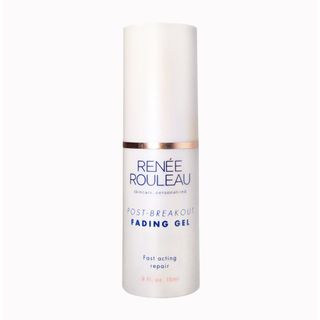
Pros: Fast-acting serum that reduces hyperpigmentation, exfoliates with lactic acid and glycolic acid, helps active acne clear quicker
Cons: May cause sensitivity if used too much
Celebrity esthetician Renée Rouleau has a few acne serums that both myself and WWW Beauty Director Erin Jahns love. But this fading gel works wonders. It's a fast-acting scar serum that's actually meant to be more of a spot treatment, but Jahns loves mixing a tiny bit with her moisturizer so it helps lighten and fade lingering red and dark spots left over post-breakouts. Plus, it has exfoliants like lactic acid and glycolic acid which help current bumps heal and deflate faster as well.
Customer Review: "I've only been using this for a few weeks, but the dark color left after a cyst or breakout has been disappearing a lot quicker. I use this under the Anti-Bump Serum and then use moisturizer and sunscreen and my skin is looking a lot clearer."
IS Clinical Super Serum Advanced Plus
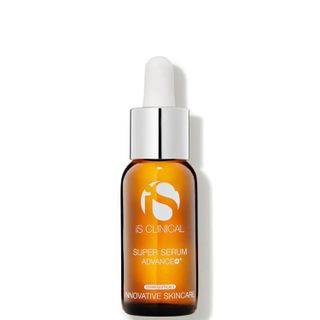
Pros: Copper tri-peptide complex stimulates collagen production in the skin, lightens hyperpigmentation with vitamin C
Cons: Expensive
"This is an antioxidant serum packed with a copper tri-peptide complex which stimulates collagen production."—Marino
Customer Review: "I love this product. Instant glow in just a few weeks of use."
IS Clinical Brightening Complex
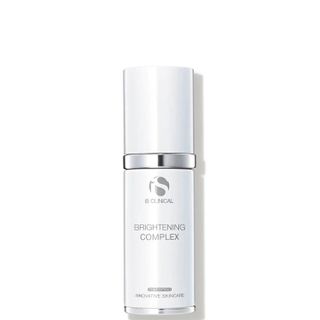
Pros: Contains brightening and exfoliating acids to lighten hyperpigmentation and reduce the appearance of active acne
Cons: Expensive
"IS Clinical's Brightening Complex is also a great option for pigment. It features acids and skin brighteners to exfoliate, lift pigment, and also has hydrating properties, making it a great option for minimalists who want to treat several conditions with one product."—Marino
Customer Review: "I've tried a lot of brightening products and settled with phyto corrective to help with my redness. My esthetician recommended this and wow. Within weeks my redness/discoloration was gone and my skin is all the same pigment. It's worth the cost and effective."
This article was originally published at an earlier date and has since been updated.

Shawna Hudson has worked in editorial for over six years, with experience covering entertainment, fashion, culture, celebrities, and her favorite topic of all, beauty. She graduated from California State University, Fullerton, with a degree in journalism and has written for other publications such as Bustle, The Zoe Report, Byrdie, Elite Daily, Mane Addicts, and more. She is currently an associate beauty editor at Who What Wear and hopes to continue feeding her (completely out-of-control) beauty obsession as long as she can. Stay up to date on her latest finds on Instagram @shawnasimonee.
-
 I've Tried Countless Expensive Serums, But Nothing Tops This $29 One
I've Tried Countless Expensive Serums, But Nothing Tops This $29 OneThis way for compliment-worthy skin.
By Eleanor Vousden
-
 My Aesthetician Just Told Me I've Been Doing These 3 Things Wrong for My Acne
My Aesthetician Just Told Me I've Been Doing These 3 Things Wrong for My AcneMajor face-palm moment.
By Shawna Hudson
-
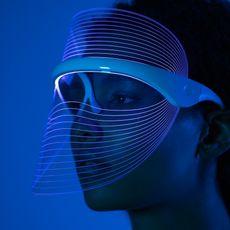 These Light Therapy Devices Are Like At-Home Cortisone Shots for Acne
These Light Therapy Devices Are Like At-Home Cortisone Shots for AcneSign me up.
By Katie Berohn
-
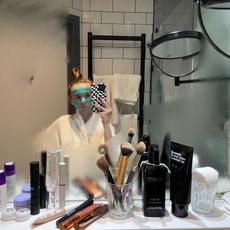 I'm an Esthetician and These Are My Most-Recommended Skincare Products
I'm an Esthetician and These Are My Most-Recommended Skincare ProductsYour skincare shopping list.
By Grace Day
-
 These 15 Moisturizers Are the GOAT for Acne-Prone Skin
These 15 Moisturizers Are the GOAT for Acne-Prone SkinDerms agree.
By Shawna Hudson
-
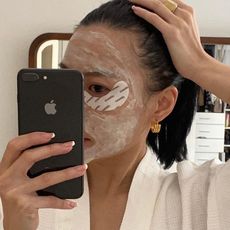 A Derm Just Told Me About the Biggest Skincare Mistakes for Acne
A Derm Just Told Me About the Biggest Skincare Mistakes for AcneAcne myth-busting.
By Eleanor Vousden
-
 14 Serums 40-Something Celebs Always Use (But Aren't Paid To)
14 Serums 40-Something Celebs Always Use (But Aren't Paid To)Serious sleuthing, here.
By Bianca Lambert
-
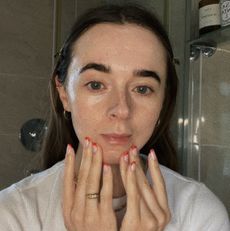 This Expert-Approved Technique Is Set to Be the Next Big Skincare Trend
This Expert-Approved Technique Is Set to Be the Next Big Skincare TrendAnd it combats acne.
By Grace Day

